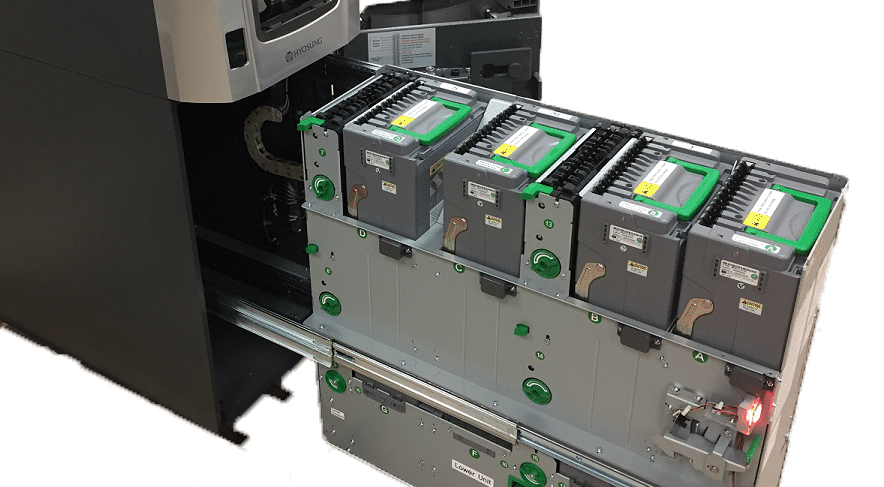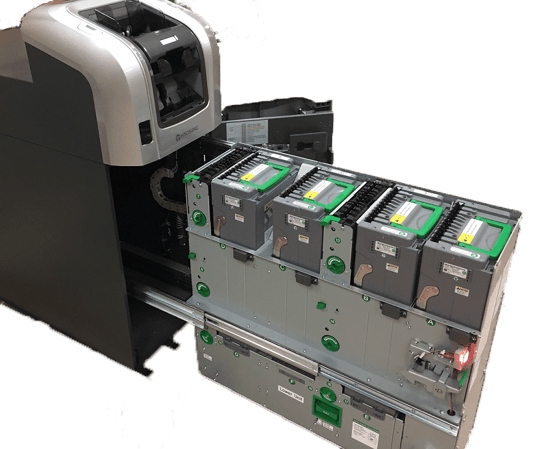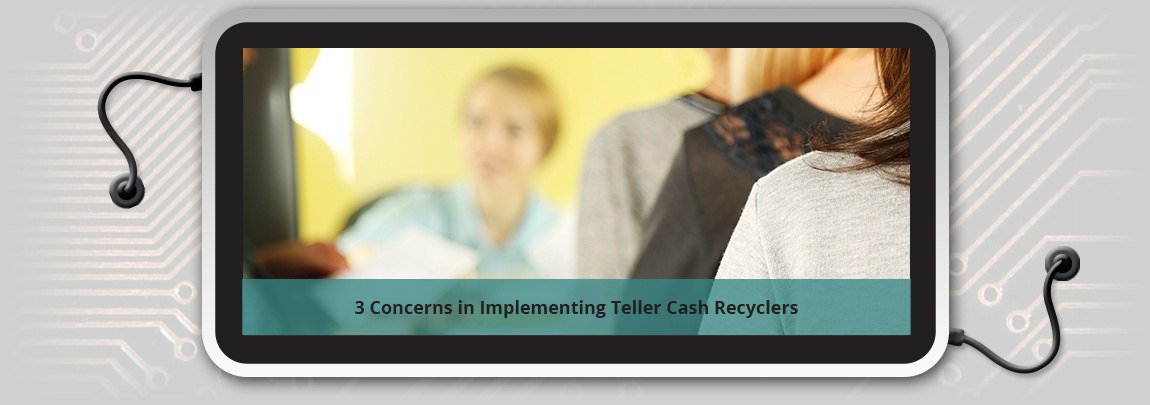Rolled Storage Module (RSM) versus Cassette Cash Recycler Storage
As a cash automation provider who carries both RSM based recyclers and cassette based recyclers, we often get asked which is better?It's a very...
2 min read
 Sean Farrell
:
Oct 23, 2017 12:58:23 PM
Sean Farrell
:
Oct 23, 2017 12:58:23 PM


Most of the rolled storage module (RSM) vs. cassette-based cash recycler comparison conversations center around speed and capacity. And while those are two very important factors that determine the performance of a machine, there are two other features that push cassette-based recyclers to the front of the pack.
You may not think about it until it happens, but how would your teller line, and more importantly your customers, be affected should your machine go down or lose power and you couldn’t get access to the cash inside the recycler?
If you are using a RSM recycler and your branch loses power, the cash is trapped inside the machine and the tellers will not be able to access it and won’t be able to serve customers. Many institutions are able move more cash from the vault into the cash recycler which is a huge efficiency gain. But if you are using a RSM recycler the cash access issue is exacerbated in a power outage because now most, if not all, of your cash is stuck inside the machine. And if you only have one unit you lose the redundancy factor because all the money is inside the recycler.
With a cassette-based recycler, even if you lose power or the machine goes down, you will be able to rack out the cassettes and access the cash to keep the teller line functioning.
Another important feature that most people consider a “nice to have” over a necessity, is the unassisted self-audit function that cassette-based recyclers offer. But even under normal circumstances, the self-audit feature saves branch staff significant time as the process takes 20-30 min to audit the entire machine and can be scheduled to run when it is convenient for the branch.
Now consider that your branch (or branches) may be in the path of a major weather incident like a hurricane or blizzard and you have to audit your machines in preparation for the aftermath of the storm. With a cassette-based recycler, it’s as easy as running the self-audit function on the machine and moving on to other tasks.
But, the audit process on an RSM machine must be done in dual control as the notes have to be dispensed from the machine in batches in order to be counted. This is a lengthy process that exposes the cash and takes up the time of two employees who could be doing other things.
In this instance, the self-audit function of the cassette-based recycler becomes part of your disaster preparation and recovery process and offers the added benefit of easily transporting and storing the cash from the recycler in locked cassettes should you desire.
When selecting cash recycler technology for your branches, it is most important to find the solution that serves the needs of your institution today and in to the future. But if you are wavering on whether the investment in a cassette recycler is worth it, beyond the capacity and speed they offer, consider what value that these two additional features can bring when you need to utilize them.

As a cash automation provider who carries both RSM based recyclers and cassette based recyclers, we often get asked which is better?It's a very...

Personally, I have a lot of respect for what Arca has been able to build. A relatively unknown player in the market just 10 years ago, the company...

There has been a huge increase in the discussion of teller cash recyclers for use in branches to aid in gaining efficienc. Teller Cash Recyclers can...